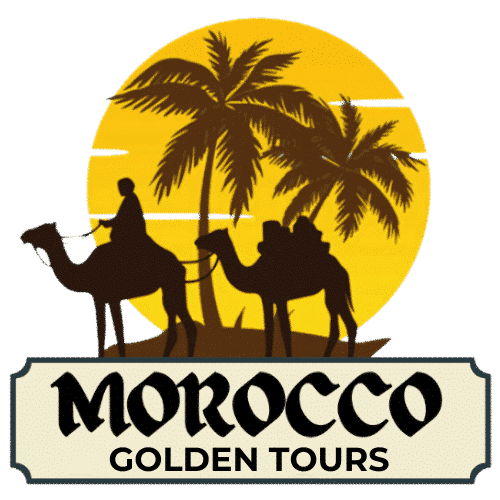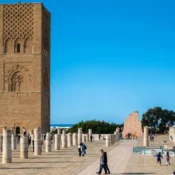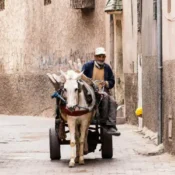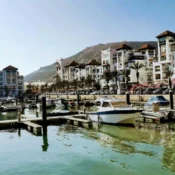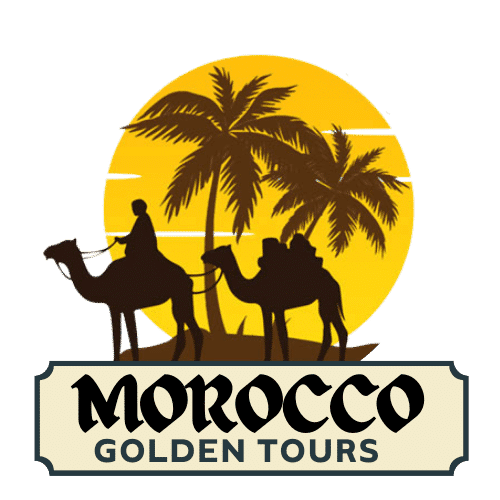Moroccan Leather: Why You’ll Love It and What Makes It So Special
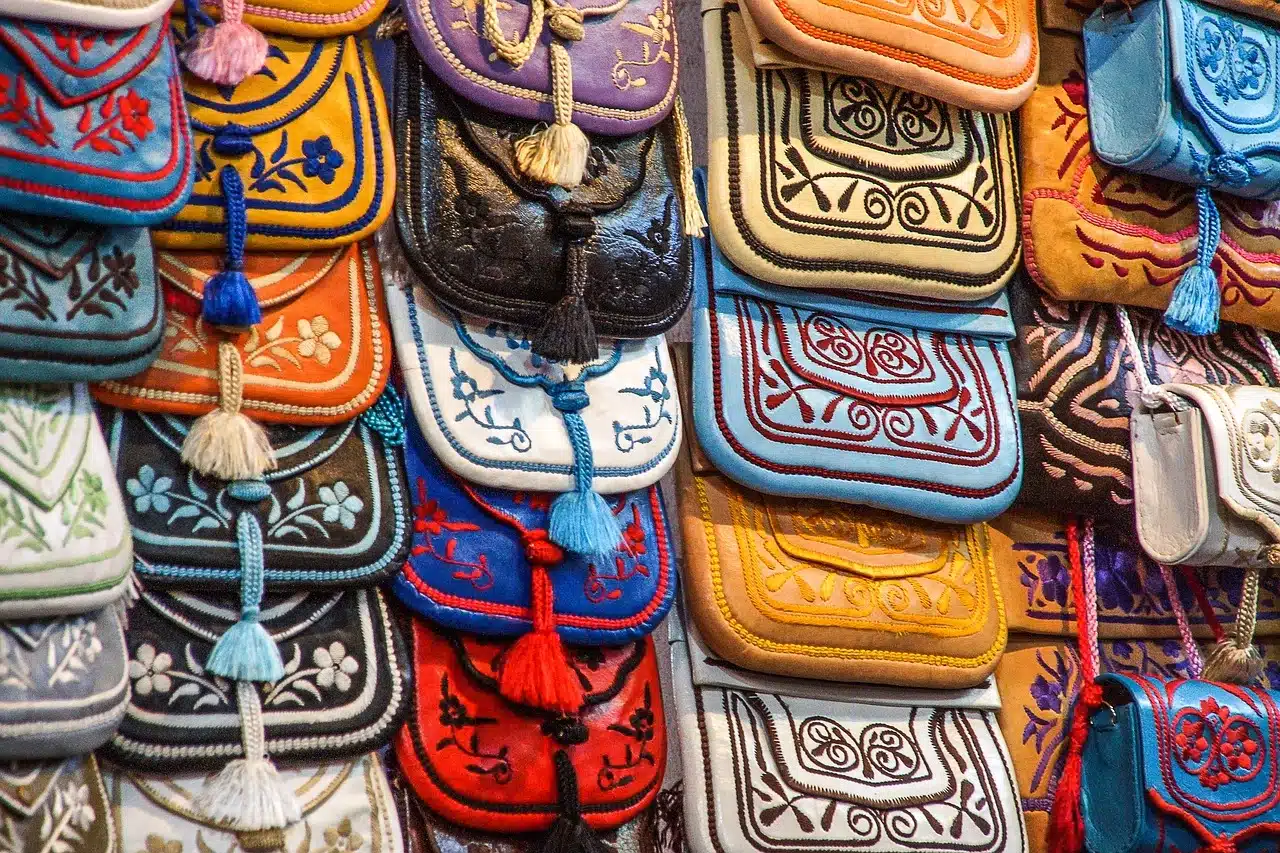
Have you ever touched something and felt history in your hands? That’s what happens when you touch Moroccan leather. It’s not just soft. It’s not just strong. It’s different. It’s alive with tradition, color, and beauty.
If you’ve never heard of Moroccan leather before, you’re in for something truly special. And if you already love it, you’ll learn even more reasons to keep choosing it. Let’s take a closer look at what makes Moroccan leather one of the best in the world.
Table of Contents
What is Moroccan Leather?
You might wonder, what is Moroccan leather exactly? Simply put, it’s natural leather made the old way, by hand. People in Morocco have been making this leather for over 1,000 years. That’s a long time! And they’re still using the same tools and methods today.
This leather is also called “marocain” in French. You’ll find it in bags, shoes, jackets, and even in home decor. It feels soft. It smells earthy. And it lasts a long time. When you buy Moroccan leather, you’re not just buying a product. You’re buying a story. A piece of culture.
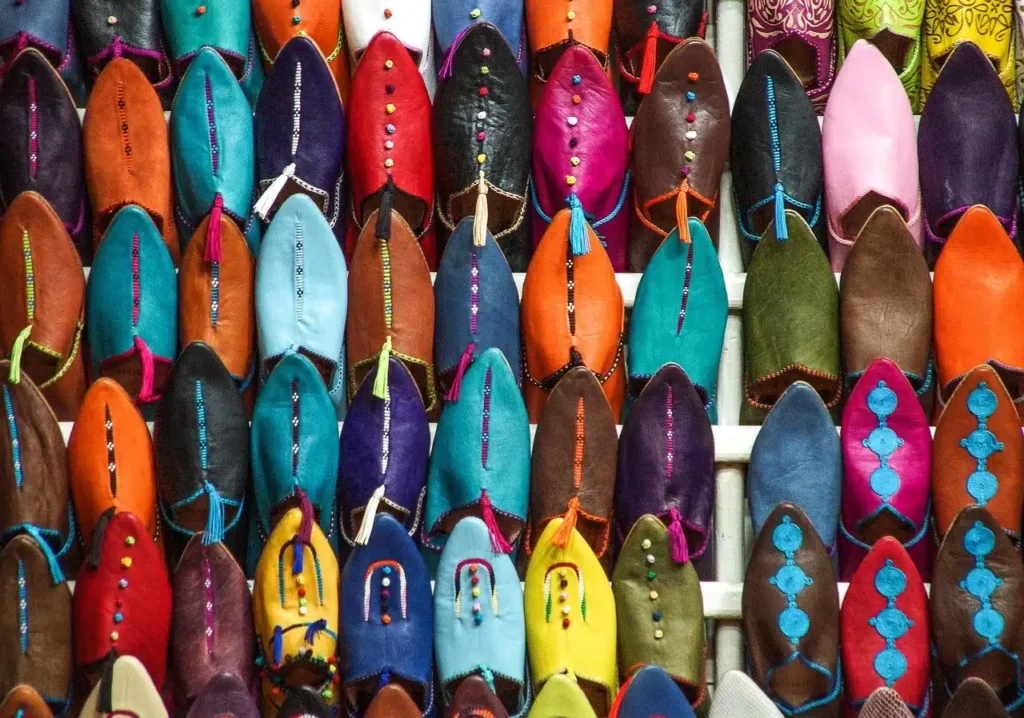
A Quick History of Leather in Morocco
Let’s go back in time. The city of Fez, in Morocco, has one of the oldest tanneries in the world. It’s called the Chouara Tannery. People have worked there for centuries. They tan leather using only natural things no chemicals.
The work is hard. The sun is hot. But the results are beautiful. That’s why people from all over the world travel to Morocco to see the leather markets. You can visit places like Marrakech or Chefchaouen and smell the leather in the air. It’s that real.
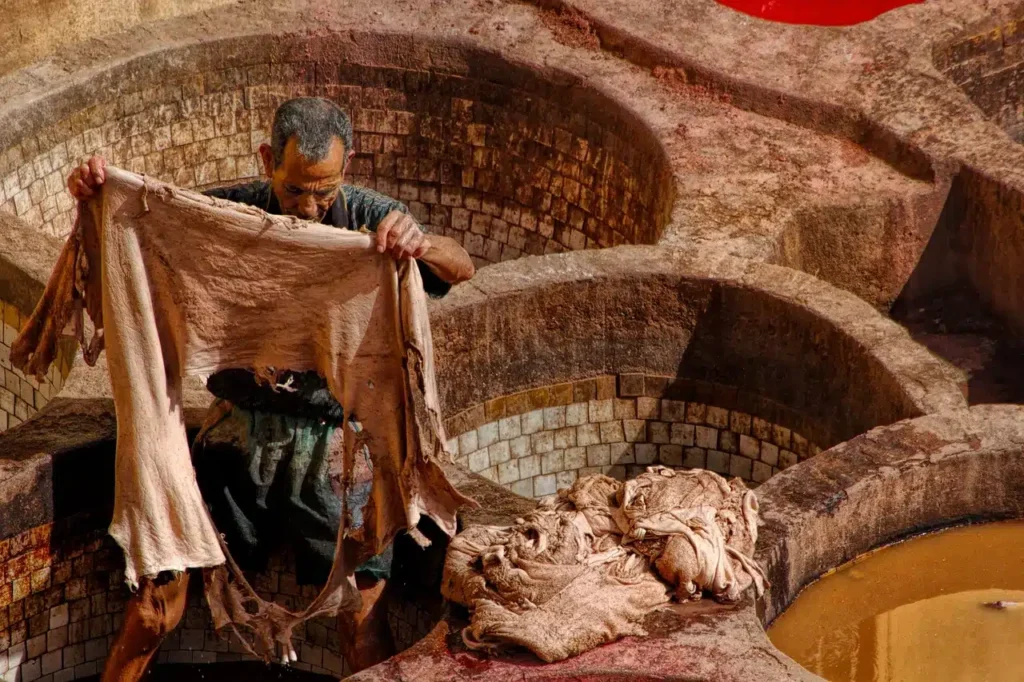
How Morocco’s Leather is Made
The process of making leather in Morocco is long. But that’s what makes it so good. It goes like this:
Step-by-Step Table:
| Step | What Happens | Tools or Materials Used |
|---|---|---|
| Soaking | The hide is cleaned and softened | Water, salt |
| Hair Removal | Hair is scraped off the hide | Lime, sharp tools |
| Tanning | The hide is treated to last longer | Pigeon droppings, bark |
| Dyeing | The leather is colored using natural dyes | Henna, indigo, saffron |
| Drying & Finishing | The leather is dried, polished, and softened | Sunlight, olive oil, hand work |
Pretty cool, right? This method keeps the leather healthy. It also keeps it friendly to nature. No machines. No chemicals. Just hands, time, and love.
Top Products Made from Moroccan Leather
Now that you know how it’s made, you may be wondering: what can you buy? Here are some of the most popular leather in Morocco items:
- Babouches (traditional slippers)
- Handbags and wallets
- Leather poufs (great for your living room!)
- Leather jackets and belts
- Notebooks with leather covers
Each item is handmade. That means every piece is different. No two are ever the same. And that’s a big part of the magic.
Where to Buy Real Moroccan Leather
If you visit Morocco, you’ll find leather everywhere. Walk through the souks (markets) in cities like:
- Fez – famous for its tanneries
- Marrakech – known for stylish leather bags
- Chefchaouen – small, but full of charm
If you’re not in Morocco, don’t worry. You can also shop online. Just be careful. Some sellers may offer fake leather or factory-made copies.
Here’s how to know if it’s real:
- Smell it – real Morocco’s leather has a natural smell
- Touch it – it should feel soft, not plastic
- Ask questions – real artisans know the story behind each item
How to Take Care of Moroccan Leather
Good news! leather in Morocco is easy to take care of. But you still need to treat it right.
Do:
- Wipe it with a dry cloth
- Store it away from sunlight
- Use leather balm if it gets dry
Don’t:
- Wash it with water
- Use strong soap or chemicals
- Leave it in wet places
With just a little love, leather in Morocco can last many, many years.
Why Moroccan Leather is Different
You’ve probably seen leather from Italy, Turkey, or even synthetic leather. So why choose Moroccan leather?
Here’s a simple table to help you see the difference:
| Feature | Moroccan Leather | Italian Leather | Fake Leather |
|---|---|---|---|
| Made by Hand | ✅ Yes | ✅ Yes | ❌ No |
| Natural Materials | ✅ Yes | ✅ Yes | ❌ No |
| Eco-Friendly | ✅ Yes | ❌ Not always | ❌ No |
| Long-Lasting | ✅ Yes | ✅ Yes | ❌ No |
| Cultural Value | ✅ Very High | ✅ High | ❌ None |
Why You Should Choose Moroccan Leather
Let’s be honest. You want something that looks good, lasts long, and feels real. That’s why Moroccan leather is perfect for you. Whether you want to decorate your home or wear something unique, there’s always something for you.
And because it’s handmade, each piece supports local Moroccan families. That means your purchase helps keep the craft alive. You’re not just shopping. You’re making a difference.
FAQs
What makes leather in Morocco so unique?
The natural way it’s made. No machines. No chemicals. Just time, care, and tradition.
Is leather in Morocco expensive?
Not always. You can find great items for a good price. Just make sure it’s real.
Does Moroccan leather smell?
Yes, it has a natural smell at first. That’s normal. And it fades after a while.
Where is the best place to buy Morocco Real leather?
Fez is the top spot. But Marrakech and online artisan stores are great too.
How can I tell if my leather is real Moroccan leather?
Check the smell, texture, and ask the seller how it was made.
Ready to Shop for Real Leather in Morocco?
Now you know everything about leather in Morocco what it is, how it’s made, and why it’s amazing. Whether you want a new bag, some home decor, or a special gift, Moroccan leather is always the right choice.
👉 Don’t wait! Explore handmade Moroccan leather goods now at www.moroccogoldentours.com and bring a piece of Morocco into your life today.
